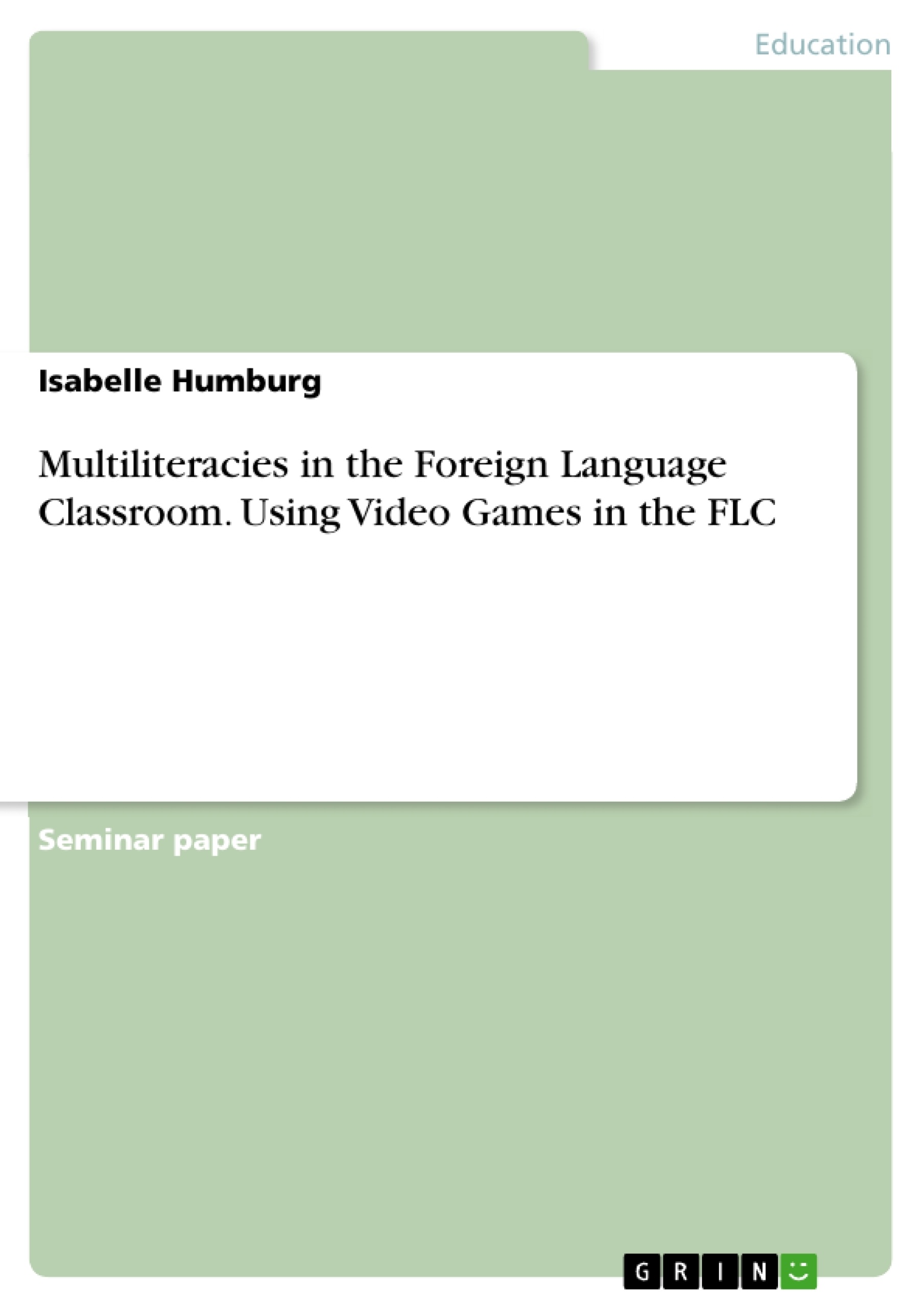According to a survey published in 2013 nearly every youth spends roughly 180 minutes online every day during the school week (MPFS 2013: 64). Of the asked adolescents, 45% said that they play computer, console or online games regularly and gave the estimate of “76 minutes on weekdays and 101 minutes on weekends” (MPFS 2013:65) spend playing digital games.
There is a term for all those born after the 1970s, that grew up surrounded and using technology on a daily basis: digital natives (Schoolnet 2009: 6). This new generation of born natives uses digital devices with little to no instruction. One could say they are fluent or literate in this 'language'. These digital natives use this technology based language to communicate, express themselves, as well as to understand and manipulate their environment. They use social networking sites as well as digital games, often combined with each other, to entertain themselves.
Through their constant use digital natives are used to an environment, which constantly rewards them for things like endurance (daily log in rewards) or finishing things in a timely matter (finishing in a quest in a certain time frame). This kind of reward system is what they expect in the classroom. A traditional classroom environment may not be motivating enough for this new generation of learners (Schoolnet 2009: 6).
This term paper deals with digital games in the English foreign language classroom (EFL). As students clearly enjoy playing these games and are motivated to do so on a nearly daily basis, why not use this kind of motivation to learn English? In the following the theory behind the usage and advantage of digital games in the classroom is outlined. In the end there is a teaching proposal for a unit, that uses an online game to teach historical facts and events.
Inhaltsverzeichnis (Table of Contents)
- Introduction
- Theory: Digital Games in a Classroom
- Relevance of Multiliteracies and Multimedia Content in the EFL Classroom
- Video Games in the EFL classroom
- A Guidline to Using Digital Games in the Classroom
- Analysis of Teaching Material
- Background Information about the Video Game Used
- Technical Information
- The Story of the Game
- Teaching Proposal
- Information about Teaching Unit
- What happens in the Used Part of the Game?
- Lesson Plan Overview
- Appendix
- Possible Animations
- Worksheets
- Worksheet “Boston Massacre”
- Worksheet Vocabulary Activities
Zielsetzung und Themenschwerpunkte (Objectives and Key Themes)
This paper explores the potential of using digital games as a teaching tool in English as a Foreign Language (EFL) classrooms. Recognizing the digital literacy and gaming habits of modern students, the paper argues that integrating video games into EFL instruction can enhance motivation, engagement, and learning outcomes. It emphasizes the importance of incorporating multiliteracies and multimedia content in the EFL classroom to cater to the diverse learning styles and digital fluency of today’s students.
- Digital literacy and gaming habits of modern students
- Integrating video games into EFL instruction
- Multiliteracies and multimedia content in the EFL classroom
- Motivation, engagement, and learning outcomes in EFL
- The benefits of incorporating video games for teaching historical facts and events
Zusammenfassung der Kapitel (Chapter Summaries)
The introduction highlights the prevalent use of technology among modern youth, particularly their engagement with digital games. It emphasizes the need to leverage this motivation and digital fluency to enhance EFL instruction.
The theory chapter explores the rationale for integrating digital games into the EFL classroom. It discusses the relevance of multiliteracies and multimedia content in engaging students and addresses the benefits of video games, including their ability to motivate, provide authentic experiences, and foster emotional engagement. It also emphasizes the potential of video games for teaching historical facts and events.
The chapter on analysis of teaching material focuses on the specific video game used in the proposed teaching unit. It delves into the background information, technical details, and narrative structure of the game, highlighting its potential for EFL learning.
The teaching proposal outlines a detailed plan for using the video game to create a pedagogical unit for teaching historical facts and events. It includes information about the teaching unit, a breakdown of the relevant game content, and a comprehensive lesson plan overview.
Schlüsselwörter (Keywords)
This paper focuses on the integration of digital games into the EFL classroom. Key concepts include digital literacy, multiliteracies, multimedia content, motivation, engagement, learning outcomes, video games, and historical events. The paper emphasizes the importance of leveraging technology and multimedia elements to enhance EFL instruction and cater to the diverse learning styles of modern students.
Frequently Asked Questions
Why should video games be used in the English classroom?
Video games leverage the high motivation and digital fluency of "digital natives" to teach language skills in an engaging and authentic context.
What is a "digital native"?
Digital natives are individuals born after the 1970s who grew up surrounded by technology and use digital devices with little to no instruction.
How can video games help teach history in EFL?
By using games with historical narratives (e.g., about the Boston Massacre), students can learn historical facts and vocabulary simultaneously through immersive storytelling.
What are "Multiliteracies"?
Multiliteracies refer to the ability to understand and create meaning using various modes of communication, including digital, visual, and multimedia content.
Does the paper include a practical lesson plan?
Yes, the paper provides a teaching proposal including worksheets and a lesson plan overview for a unit using an online game.
- Citar trabajo
- Isabelle Humburg (Autor), 2014, Multiliteracies in the Foreign Language Classroom. Using Video Games in the FLC, Múnich, GRIN Verlag, https://www.grin.com/document/293759



